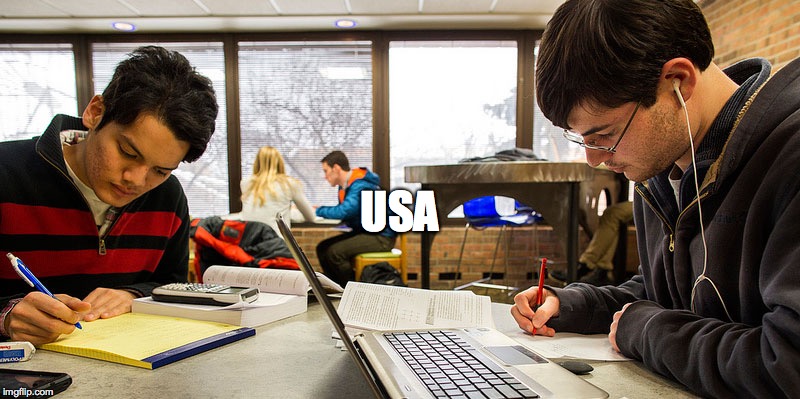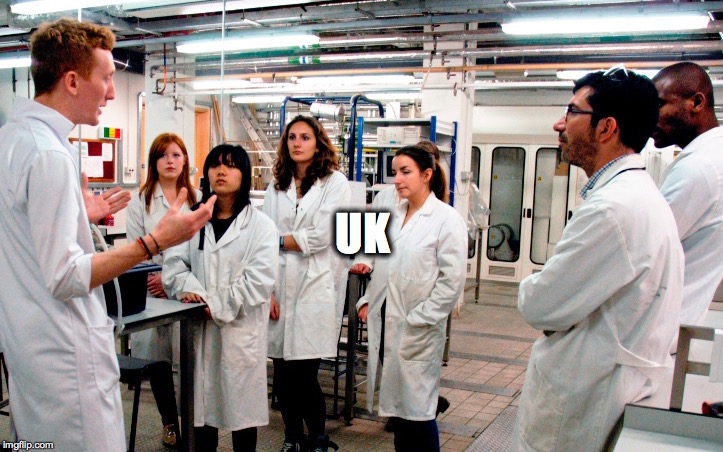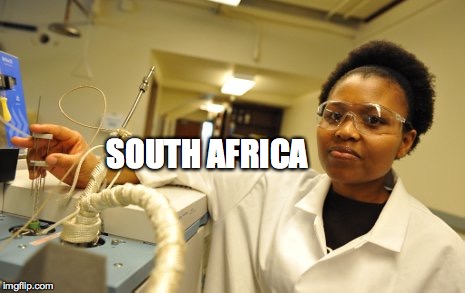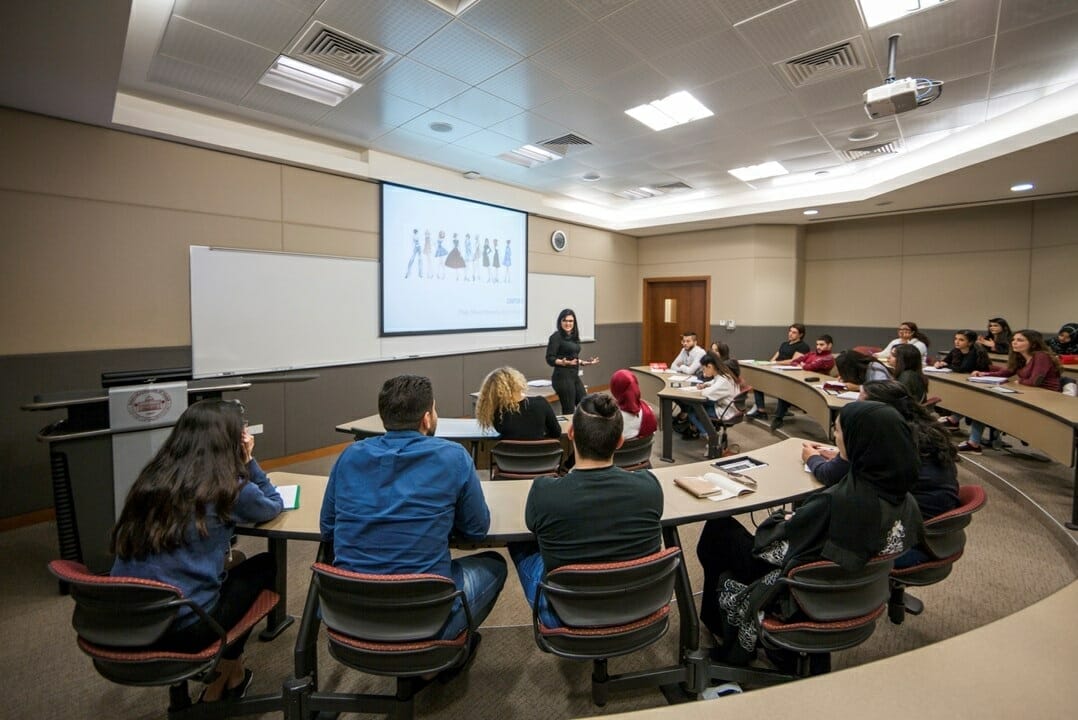I am a fresh graduate chemical engineering from the American University of Sharjah. I am sharing this dossier to compare the curricula of various chemical engineering universities around the world so that students may learn the peculiarities and similarities of each uni.
I am not endorsing any schools or universities here. This is my own research and just sharing my thoughts with GineersNow as one of their junior media correspondent in the Middle East.
Chemical Engineering Curricula in the USA and Canada

Source: University of Michigan
The General Education Subjects required to complete are pretty much same in terms of credits. They require at most 6 credits, but not more than 9 credits from one department (Social science, humanities or arts). One other common thing is there are 4 writing, oral subjects required in both UAE and USA curriculum. The names or purpose may vary, it may be solely for communication purposes or writing purposes. The major subjects and surprisingly, even their names are very similar.
The main difference between the UAE and USA curriculum are probably the number of credits required to complete the entire course. The UAE curriculum requires more number of credits to complete the entire course. Along with Differential Equations, the engineering students in the UAE also need to do Linear Algebra. However, in the USA curriculum, students only need Ordinary/Partial Differential Equations. Some of the USA curriculums require students to suffer both Physical Chemistry 1 and Physical Chemistry 2. Some even require students to do Organic Chemistry 1 and Organic Chemistry 2. However, in the UAE curriculum, the students only need to do Physical Chemistry 2, for which the pre-requisites for the subject is Thermodynamics 1. Also, the students require Organic Chemistry 1 and its lab, since the part which is necessary in Organic Chemistry 2 is incorporated in that one subject. Even though, the students have an option of taking Organic Chemistry 2 as a chemistry-elective, most of them don’t, since the ‘ass-will-always-be-on-fire’.
Chemical Engineering Curricula in the UK, France and Some Parts of Europe

Source: University College London
First of all, the UK universities offer M. Eng in Chemical Engineering, that is, Masters of Engineering. The degree is for four years and is more like Advanced Bachelor’s Degree, with pieces of Master’s components. The M. Eng is for four years, whereas, the B. Eng degree is for three years. That’s one of the main differences.
Another main difference is that the students have to undertake design projects, since Year 1, whereas, in the UAE curriculum, the design projects start by Year 4 and that also major designs. In the UK curriculum, the students start with 1-2 minor design projects and then go ahead with major design projects by Year 3. Also, the UK universities don’t require the students to do much humanities, social science or arts subjects. They can choose to do other subjects by the end of Year 1, or they may be required to do a minor program in other engineering programs itself. The Year 1 for them or for some the first two years, are the basics of the engineering disciplines. They do all the basic courses from all the respective engineering departments, so that they get a taste of what each major is like. They may even do just Natural sciences in their first year. Then by Year two, the students go ahead with their own disciplines and the subjects become more concentrated. In some universities, students do subjects like Physical Chemistry, Thermodynamics and Fluid Mechanics in their first year. The only thing I can say to these students is, God Bless You. Hopefully, you will survive to see Year 2.
With the UAE curriculum, these subjects start in Year 3. In the first year, students complete all the pre-requisites and by the second year, we are introduced to the major. By the third year, the pressure builds up with these subjects, so we are basically gradually introduced with the program and what its like. Some UK curriculums don’t require students to take Organic Chemistry. Instead of that they require them to take subjects like Biochemistry and Physical Chemistry.
Chemical Engineering Curricula in East, West and South Africa

Source: TolaJOB
The South African curriculum is pretty much like the UAE curriculum. They start off easy, with pre-requisites, natural science courses. Then, the curriculum eventually incorporates the main Chemical Engineering subjects, increasing in difficulty and making it worse for the students. However, some of the curriculums have a lot of elective requirements. The UAE curriculum requires students to complete only 6 credits for free electives, whereas, in SA curriculum, some universities require minimum 16 credits for free electives. For humanities, the UAE curriculum requires 6-9 credits, whereas in SA curriculum, they require minimum 18 credits to complete. All the SA curriculum isn’t similar, some actually require very few elective courses.
Chemical Engineering Curricula in the Philippines, Malaysia and other ASEAN Countries

Source: UP KEM Folio
The Philippine curriculum doesn’t touch up on the actual Chemical Engineering courses, till they reach the second semester of their second year or their third year. Before that, they do all the required pre-requisites, which includes subjects like Differential Calculus, Integral Calculus, Engineering Drawing 1 etc. One thing that is very different from the UAE curriculum is the fact that they have Physical Education till the end of their second year, which is indeed very necessary. Other than that, students have to do subjects like Analytical Chemistry 1 and 2, which the UAE curriculum doesn’t require students to do. The UAE curriculum requires students to do Differential Equations, whereas, some Philippine curriculum requires students to do both Differential calculus and Differential Equations.
Their curriculum requires them to do Thermodynamics 1 by the end of their third year or in some, in their fourth year. However, in the UAE curriculum, Thermodynamics 1 is a second year subject and in some a third year subject. Other than that, the Philippine curriculum does some Mechanical Engineering subjects like Dynamics of Rigid Bodies and Statics of Rigid Bodies. Basically, the students need to do around 8-9 subjects every semester, including the lab subjects, whereas, for us, it’s maximum 6 subjects in one semester, including two subjects in the summers. All I can say to the students is, Good Luck. Even if, they are 8-9 and are hell-driven, you will, for sure, emerge victorious.














